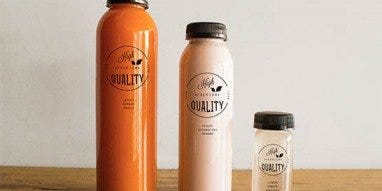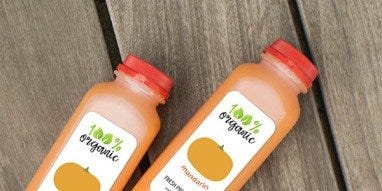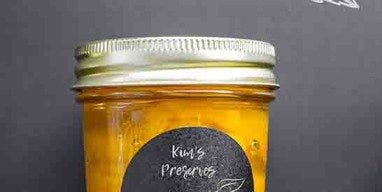A Look At The Process of Recycling Plastic Bottles
Article By : Jonathan @ BottleStore
Plastic is one of the most important and widely used materials in the world. Americans alone throw away more than thirty million tons of plastic every year but only a small percentage of that plastic is recycled. Recycling plastic is important as it can take as many as one thousand years to break down in landfills, if it breaks down at all, adding to the problem of pollution. The good thing about plastic is that many different kinds can be recycled and reused for other purposes, cutting down on the amount of plastic waste found in landfills.
The Plastic Recycling Process
When plastic is recycled, it goes through a step by step process that allows it to eventually be reused to make other products.
Collecting - The first step in recycling plastic is collecting it. Plastic is available in many different forms including bottles, bags, and more. Scrap plastic is collected and is then sent to a collecting yard where it can be packed up and transported to processing plants.
Sorting - The process of actually recycling plastic begins with sorting. Plastics need to be sorted by their color and resin content. Sorting also helps to eliminate any potential contaminates. Sorting plastics can be labor intensive but there are special machines that can help sort. After the plastic is sorted by color and resin content, it heads to the recycling mill and is further sorted based on the symbols found on the bottom of plastic materials.
Shredding - Once plastic is sorted, it needs to be cut into tiny pieces. The scrap plastic is cut and ground into tiny flakes or pieces. The plastic flakes are then separated using a machine to ensure that different types of plastic are not put together. Different types of plastics are used to make different things so it is important for them to be properly separated.
Cleaning - Once the plastics are separated, in order to ensure any remaining contamination is removed, the flakes are washed with special detergent. After the plastic is cleaned, it is again separated based on resin content, and the flakes are then subjected to low heat in order to completely dry them.
Melting - Once the plastic flakes are dry, they are then melted down and can either be molded into a new shape or processed into granules. The plastic melting process is done using special equipment under strict temperature regulations to prevent destroying the plastic.
Making Nurdles - After the melting process is complete, the plastic flakes are compressed to make nurdles which are small pellets. At this point, the plastic is ready to be reused to make new products. The nurdles are then ready to be sent to plastic manufacturing companies to be used in making other products.
Types of Recycled Plastic
There are many different types of plastics, some of which are unable to be recycled. Common kinds of recycled plastics include the following:
- Polyvinyl Chloride - Versatile plastic used to make bottles, cling film, and PVC pipes.
- High Density Polyethylene - Strong, stiff plastic used to make bottles, and trash bags.
- Low Density Polyethylene - The most common kind of recycled plastic. Strong, and flexible, it is used to make frozen food packages, bottles, and flexible containers and lids.
- Polyethylene Terephthalate - Tough plastic that is used to make food bottles and jars.
There are many advantages to recycling plastics, most importantly, it helps to reduce environmental issues. Plastic recycling also provides a sustainable source of materials for making new products. Recycling plastic also helps to reduce the amount of waste found in landfills, and requires must less energy than producing plastic from scratch.
Additional Information on The Plastic Recycling Process
- What Happens to All That Plastic?
- Association of Plastic Recyclers - Recycling Process Videos
- Plastic Recycling: Challenges and Opportunities
- How to Recycle Plastic Jugs and Bottles
- Facts on Recycling Plastic Bottles
- The Journey of a Plastic Bottle After it Hits the Recycling Bin
- The Benefits of Recycling FAQ
- Plastics Recycling in 4 Simple Steps
- How Do They Recycle Plastics?
- PET Resin Association - Recycling PET Plastic









